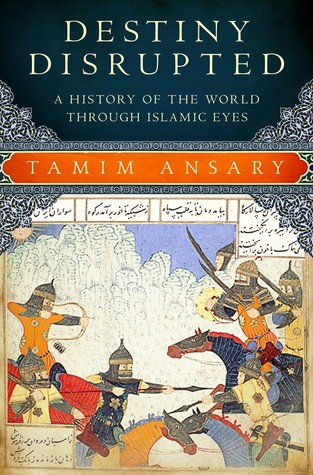More on this book
Community
Kindle Notes & Highlights
by
Tamim Ansary
Read between
November 21, 2019 - April 22, 2020
Nasser approached the Americans; but they didn’t see Egypt as a key to “containing” Communism and mistrusted what this Arab fellow would do with weapons, so they turned him down. Nasser then went to the Soviets and from them got mountains of weaponry—which made the Americans sit up and take notice. In typical Cold War fashion, they decided Egypt was important after all.
Eisenhower ordered the Europeans to give the canal back to Egypt and go home, and U.S. dominance was such that both countries (and Israel) had to obey.
Under Qutb’s leadership, the Muslim Brotherhood basically declared war against the governments of Egypt, Syria, Iraq, Jordan, and Lebanon and against all the secular modernists who supported them.
On June 5, without warning, Israel attacked Egypt, Jordan, and Syria simultaneously.
When Israel attacked the Arabs, it really attacked only this current; and when it crushed Nasser, it damaged only this Westernizing, modernizing, secular, nationalist tendency, and not even every expression of that.
Israeli authorities have faced ever-mounting insurgencies called intifadas, to which they have responded with ever more brutal measures. Year after year and decade after decade, this strike-and-counterstrike syndrome has drained the nation’s energies and compromised its moral arguments in the world.
On the other side of the ledger, the war radicalized and “Palestinianized” the PLO, empowered the Ba’ath party, and energized the Muslim Brotherhood, which spawned Jihadist splinters as the years went
With high hopes, then, Iranians went to the polls and voted a secular modernist named Mohammad Mosaddeq into power as their prime minister. Mosaddeq had pledged to recover total control of the country’s most precious resource, its oil, and accordingly upon taking office he canceled the lease with British Petroleum and announced that he was nationalizing the Iranian oil industry.
The U.S. Central Intelligence Agency immediately moved to stop “this madman Mosaddeq” (as U.S. secretary of state John Foster Dulles called him). In late August of 1953, a faction of the Iranian military carried out a bloody CIA-funded coup that left thousands dead in the streets and put Iran’s most popular political figure under house arrest from which he never emerged.
In his place, the CIA restored the son of Reza Shah Pahlavi (also called Reza Shah Pahlavi) as the country’s king. The young shah signed a treaty with the United States giving an international consortium of oil corporations the job of “managing” Iran’s oil. It would be hard to overstate the feeling of betrayal this coup embedded in Iran or the shudder of anger it sent through the Muslim world.
the rich ate better, dressed better, lived more comfortably, went to better schools, and used a more educated diction when they spoke, but they were just a richer version of the poor. In the Muslim world, the difference was not just economic but cultural and therefore the gulf between the worlds fed alienation and produced a more anti-colonialist flavor of resentment,
Shah Reza Pahlavi, who had profited from Mosaddeq’s ouster, was a secular modernist in the Atatürk mold, but where Atatürk had been a fundamentally democratic man with an autocratic streak, the Shah of Iran was a fundamentally autocratic man with a totalitarian streak.
In fact, in the last two decades of the twentieth century, Islam’s secular modernists saw their power erode almost everywhere.
After the war, the United Nations imposed sanctions that virtually severed Iraq from the world and reduced Iraqi citizens from a European standard of living in 1990 to one that approached the most impoverished on Earth. Incomes dropped about 95 percent.


